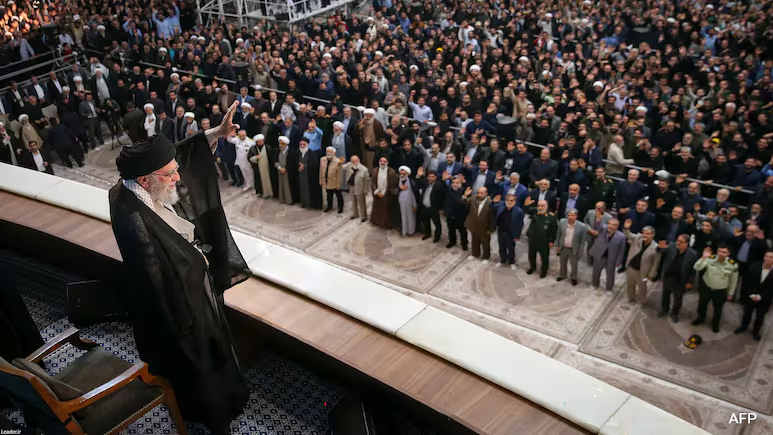Lt Governor hands over Individual and Community Forest Rights certificates to members of Tribal Communities of Jammu Division
About 10,000 individual & community claims have been received in 10 districts of Jammu province, out of which more than 8000 claims have been scrutinized at the Gram Sabha/Forest Rights Committee (FRC) level
· Central government to provide financial assistance for development of infrastructure in tribal habitations.
Jammu, September 18: After the historical beginning in Kashmir division, Lieutenant Governor Manoj Sinha today handed over the Individual and Community Forest Rights certificates to members of Tribal Communities of Jammu division, at Convention Centre here.
While addressing the members of various tribal communities belonging to Jammu division, the Lt Governor said that a new era of social equality has been ushered for tribals in the UT with the handing over of individual and community rights certificates to them.
The Lt Governor congratulated the tribal communities and said that within a week of its beginning in Kashmir division, the process of handing over of Forest Rights Certificates has been started in Jammu. He termed their participation significant in the complete implementation of Forest Rights Act.
“We have formulated a robust mechanism to ensure these rights are decided at the grassroots level in consultation with PRIs and forest department”, he added.
On the occasion, the Lt Governor felicitated Deputy Commissioner Rajouri, Jammu, Poonch, and Kishtwar for their outstanding work in implementation of Forest Rights Act in their respective districts. He also lauded the efforts of elected public representatives and the officers of Tribal Affairs and Forest departments.
Terming the Forests Rights as the basic right of tribal population, the Lt Governor said that with the complete implementation of Forest Rights Act 2006 in the UT, the interests of communities dependent on forest resources, and whose existence is incomplete without forests are safeguarded. The UT administration is steadfast for their holistic development and prosperity, he added.
The Lt Governor said that the government has launched various schemes to extend best education and medical facilities, besides offering sustainable employment opportunities to the youth from tribal community. ‘We have also finalized a plan to build transit accommodation for migratory population and develop tribal villages as Model villages,’ he said.
“Work on transit accommodation will start soon in tribal areas of Kandi, Thanamandi in Rajouri, Behram Gala in Poonch and Udhampur and Ramban along the National Highway. Similar plan is for Dubjan and Lal Ghulam in Shopian and along NH in Pulwama”, he added.
The Lt Governor said that after Independence, many Tribal representatives made the demand for safeguarding their right to education, healthcare, and on forest produce, which was not impossible to achieve but even after decades, the tribal community of J&K could not get their rights.
“I want to assure you that the UT administration is committed to protect your interests and whatever difficulties or obstacles may come, we will work to remove them from the way of your development and prosperity”, added the Lt Governor.
The Lt Governor said that the Certificates of Forest Rights Act will connect Tribal Population with the mainstream development. It will play a huge role in the UT towards creating an equal society free from any social discrimination.
The Lt Governor informed that 10,389 claims were received from all the 10 districts of Jammu division, out of which more than 8000 claims have been scrutinized at the level of Gram Sabhas and Forest Rights Committees, and are now being examined by Sub-Divisional Level Committees (SDLCs).
Listing out various initiatives the UT administration has taken for the welfare of tribals, the Lt Governor said that transit accommodation in Rajouri, Poonch, Udhampur, and Ramban will also have medical facilities for tribal people and veterinary dispensary for their cattle.
The Lt Governor also mentioned about Tribal Health Plan, health sub-centre, mobile medical care units for the migratory population; Tribal Bhavans in Jammu, Srinagar and Rajouri; 1500 mini sheep farms for sustainable livelihood of tribal community and making them financially capable.; Selecting 500 tribal youth for specialized skill development programmes including Commercial Pilots, Management, hospitality training etc.; Setting up 16 Milk Villages to connect at least 2000 youth to the dairy sector at the cost of Rs 16 crore, besides providing training, branding, marketing and transport facilities to the youth.
The Lt Governor said that Rs 73 crores, together with the Central Government and the UT Capex budget, has been sanctioned this year for the Cluster Tribal Model Village.
Noting the problems faced by tribal community of J&K due to non-implementation of Forest Rights Act, the Lt Governor said that Hon’ble PM had started Pradhan Mantri Van Dhan Yojana in April 2018, so that the tribal community could enhance their income by marketing forests products, but the program too could not be implemented in the UT, now with the introduction of the Forest Rights Act, these rights have been given to the tribal community.
The Lt Governor expressed gratitude towards public representatives involved in this entire campaign and congratulated all the officers of the administration. “We will review the impact of all the programs that are being run for tribal people and wherever required necessary changes will be made. With this new system of social harmony, a strong J&K will move forward on the path of development and prosperity”, concluded the Lt Governor.
Farooq Khan, Advisor to Lt Governor said that the implementation of Forest Rights Act will open new vistas for the tribal communities and give them renewed confidence during their migrations, which otherwise were deprived of their genuine rights.
Dr Arun Kumar Mehta, Chief Secretary highlighted how the government is working with compassion towards one and all for ensuring inclusive, equitable development of all sections of the society. He also underscored the need to complete the exercise of granting Forest Rights Act to the eligible beneficiaries within minimum possible time.
Sanjeev Verma, Commissioner Secretary, Department of Forests, and Dr Mohit Gera, Principal Chief Conservator of Forests also highlighted the working of Forest department, tribal welfare initiatives of the department, besides the interdepartmental synergy behind the conferring of Forest Rights to the beneficiary population.
Dr Shahid Iqbal Chowdhary, Secretary Tribal Affairs read the welcome address and gave the Vote of Thanks.
Divisional Commissioner Jammu, Dr Raghav Langer; Deputy Commissioners; officers from Forest department; DDC Chairpersons; PRI representatives including BDC Chairpersons, DDC members; beneficiaries from Gujjar-Bakerwal, Gaddi-Sippi communities were present on the occasion.
Amarnath Yatra people’s pilgrimage, not just an administrative Task: LG Sinha
Srinagar, June 14 : Describing upcoming Shri Amarnath Yatra as a sacred Journey, Lieutenan…








